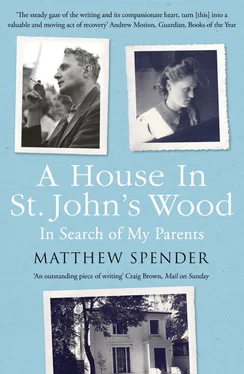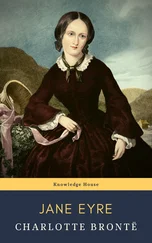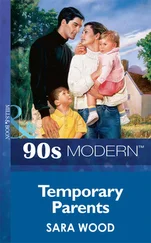Auden left England in the early summer of 1928 as soon as he’d graduated. First, he found rooms in a quiet suburb of Berlin, but at the beginning of the following year he moved to the centre of town and began to lead a more adventurous life. He kept an interesting diary, which seems to follow a programme involving the relationship between love and sex. He sought adventures with the boys of the Adonis Bar and other Lokalen , with their wide assortment of different talents, and he kept his reactions under observation.
After numerous trials, Auden fell passionately in love with a sailor called Gerhart Meyer, ‘from the sea / The truly strong man’, as he appears in one of Auden’s early poems. Gerhart’s thing was to fuck a prostitute in Wystan’s presence, and Wystan went along with this, even though the intention was clearly to make him jealous. With detachment Auden writes in his diary: ‘What is odd is that when he could have any woman he liked from the Queen of England upwards, he chooses whores and not the prettiest either.’ Auden does not want to feel jealous, so he tries to define jealousy to see if he fits into its parameters. ‘Jealousy is of two kinds, the fear that I don’t exist, and the fear that he or she doesn’t exist.’ Usually, writes Auden, he’s not jealous – for the simple reason that he’s so sure of himself he can never feel he isn’t there. Therefore Gerhart, or category two, must be the case. Indeed, ‘He seems to belong to another world and might go up in smoke any moment.’
This diary, which has never been published, shows how difficult it was for Auden to perceive reality. The right-hand page is for experience summarized as objectively and truthfully as possible. The left-hand page is for abstraction. In a letter written to my father at the beginning of the war, Wystan said that he needed a great deal of abstraction, in the shape of rules and theories, before he understood what he felt. ‘My dominant faculties are intellect and intuition, my weak ones feeling and sensation … I must have knowledge and a great deal of it before I feel anything.’
Gerhart may have been a ‘truly strong’ man, but some of the boys of the Adonis Bar dressed up as sailors, took their lovers to Hamburg on the grounds that they were about to set sail, fleeced them for farewell gifts and then secretly took the train back to Berlin. From Auden’s diary, it looks as if Gerhart was one of these – for in Hamburg, he suddenly vanished.
In another mood – this is also typical of Auden – he totted up the expense. He was missing his dressing-gown and a pistol, and he’d spent too much money on Gerhart’s shoes. Not too bad, considering. But he became depressed. He took a day trip out of Berlin to look at the countryside. Observing the beautiful indigo sky behind the steel works as he came back, he thought: ‘Country on a fine day always makes me feel Why do I bother about people. They are insignificant. But country is not enough.’
Auden’s 1929 diary is one of the rare occasions where one can guess how his strange and exceptionally intelligent mind worked. Love, and sex, and writing, must surely be connected – but how? My father thought that they could be welded together into one gift, but he found by experience that although an adventure opened up new possibilities for his writing, the long-term prospect of love got in the way.
In the long vac of 1929, Stephen also went to Germany, but he stayed in Hamburg rather than Berlin. He also had a plan. ‘I have always regarded my body as sinful, and my own physical being as something to be ashamed of and to be overcome by compensating and atoning spiritual qualities. Now I am beginning to feel that I may soon come to regard my body as a source of joy.’
At a party filled with beautiful uninhibited young people, he overheard the word unschuldig , and he assumed they were referring to him. It means ‘without guilt’. Stephen latched on to this word as a talisman that would guide him through all his future explorations of love. Whatever he did with his body, it would be ‘without guilt’. My father often talked to me about the German concept of the ‘guiltless fool’, with reference to Parsifal , for example. The guilt that had been drummed into him by his education was to be kept at bay with this word. It was his shield, his banner, his credo.
In Hamburg he went through one unsatisfactory night of love with his host, a rich and cultured young German who ‘collected’ writers. Stephen wrote about it in his diary, which he tried to turn into a novel as soon as he got back to Oxford. This was The Temple , the homosexual coming-of-age novel that failed to find a publisher for nearly sixty years.
By Stephen’s own account, The Temple went through five major drafts over the next three years. It took time away from writing poetry and it delayed the publication of his first collection of poems with Faber for at least a year. At one point the heroine of The Temple was a girl called Caroline, but this proved impossible and the book returned to the viewpoint of a first-person narrator. Stephen’s problem was that he couldn’t get away from what had happened; and novels surely need to be pushed beyond a disguised version of real events. Auden had been aware of this drawback in Stephen’s writing from the moment they’d discussed it on that famous picnic.
The Temple was Stephen’s third attempt to write a novel. The first, ‘Instead of Death’, was a thinly disguised account of his first year in Oxford, including his meeting with Auden, who seems to have had a role in the book as a ‘Lord of Death’. Louis MacNeice read this text, which has not survived. He thought the portrait of Auden was bad, but it was ‘an exquisite example of Stephen’s lust to mythologise the world in which he walked’. MacNeice told Stephen bluntly that he didn’t recognize his Oxford. ‘Oh that does not matter, Stephen said, I am thinking of transposing the whole scene to a lunatic asylum.’
Stephen sent ‘Escaped’, his second novel, to Christopher Isherwood for criticism. He’d met Christopher in Auden’s room in a scene that has been described so many times it’s not worth mentioning, except to say that everyone behaved in character. Stephen was bumbling and enthusiastic, Christopher was clipped and professional. Christopher read ‘Escaped’ and responded with a tough letter. He’d seen some of the sections before as independent pieces, he wrote, and he’d liked them. But they did not add up to a novel and the last section was ‘complete trash’. Stephen’s narrator was mad, and Stephen himself was anything but that. Madmen were boring, wrote Christopher, because they had no connection with reality. The material was too close to the author. ‘You are right down in the scrum with your characters, not up in the grand-stand.’ He must learn the craft of writing. A novel had to add up to more than a paraphrase of real events.
Stephen was not offended. He took for granted that Christopher was the Master. In 1930, after Stephen had left Oxford (without having obtained a degree), he joined Christopher in Berlin and set about rewriting The Temple . Their relationship – Isherwood makes it clear in Christopher and His Kind – was that of ‘teacher and pupil’. In their later reminiscences, both writers tinged these roles with irony. Stephen took Christopher’s letters as if they’d been red-hot bulletins from a front where literature was being deployed like guns. Isherwood emphasized the huge difference in their relative heights, so the taller pupil would have to bend down to hear whatever words of wisdom the Master might be whispering. But the underlying fact remains: Spender needed to learn from Isherwood. This made him more patient, respectful, even deferential towards Isherwood than he ever was towards Auden. He even followed Isherwood’s diet of lung soup and toffee, with dreadful results for his teeth.
Читать дальше












